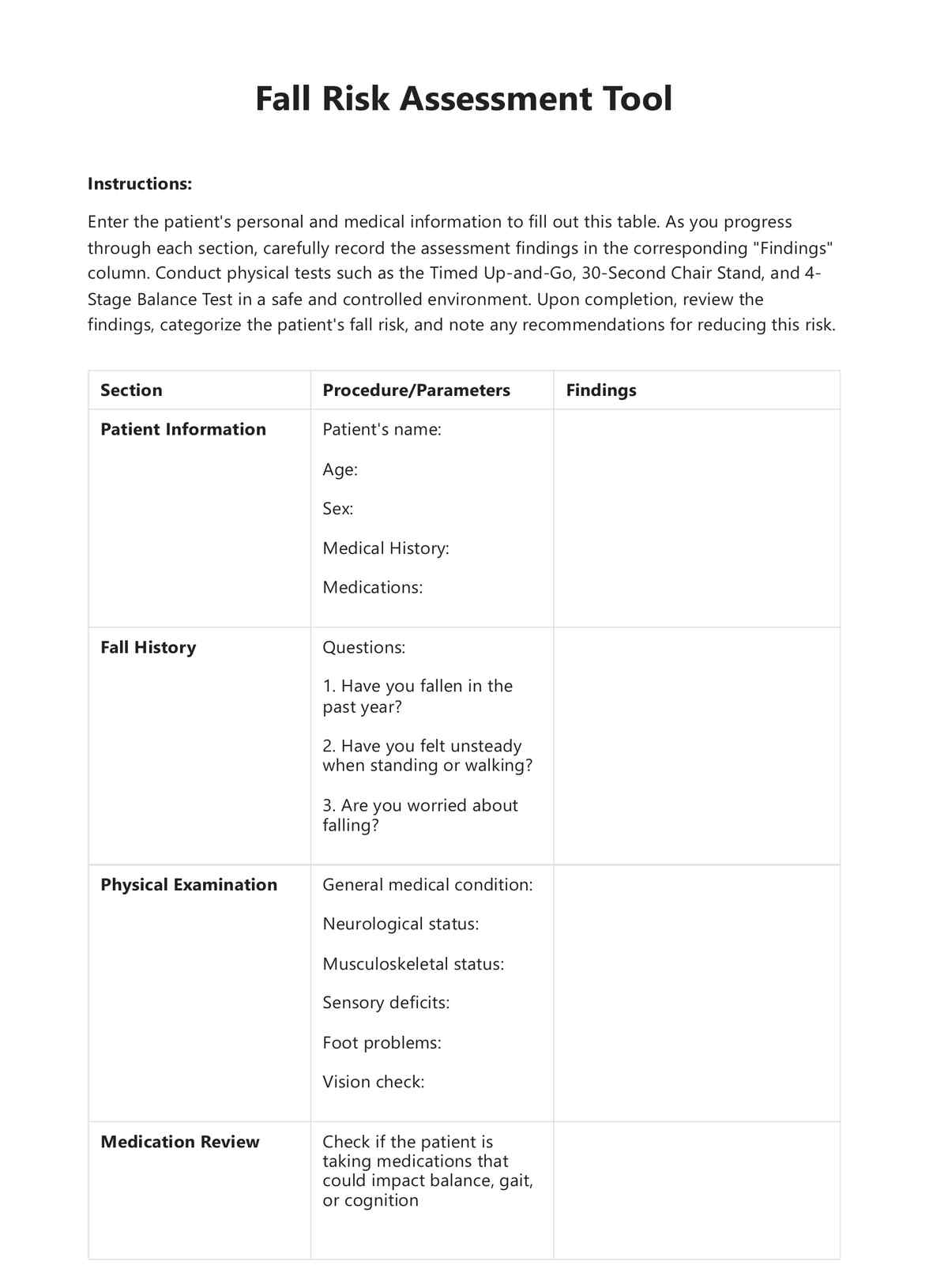How Dementia Fall Risk can Save You Time, Stress, and Money.
Table of ContentsFascination About Dementia Fall RiskDementia Fall Risk Can Be Fun For AnyoneThings about Dementia Fall RiskThe Facts About Dementia Fall Risk UncoveredRumored Buzz on Dementia Fall Risk
Make certain that there is a marked area in your clinical charting system where team can document/reference ratings and document appropriate notes associated to fall avoidance. The Johns Hopkins Autumn Risk Analysis Tool is one of many tools your staff can make use of to assist avoid damaging clinical events.Individual falls in medical facilities are usual and debilitating damaging events that persist despite decades of initiative to decrease them. Improving interaction across the assessing registered nurse, treatment team, patient, and person's most involved good friends and household might strengthen loss prevention efforts. A team at Brigham and Female's Hospital in Boston, Massachusetts, sought to develop a standardized fall avoidance program that focused around improved communication and person and family involvement.

The development team stressed that successful implementation depends on client and team buy-in, assimilation of the program into existing process, and integrity to program procedures. The team kept in mind that they are grappling with just how to make certain connection in program implementation throughout durations of crisis. Throughout the COVID-19 pandemic, as an example, an increase in inpatient falls was related to limitations in individual engagement along with restrictions on visitation.
The Basic Principles Of Dementia Fall Risk
These events are typically considered preventable. To implement the intervention, companies need the following: Accessibility to Loss TIPS resources Fall TIPS training and re-training for nursing and non-nursing team, including new registered nurses Nursing workflows that permit patient and family interaction to carry out the drops evaluation, guarantee use of the avoidance plan, and carry out patient-level audits.
The results can be highly harmful, commonly increasing person decrease and causing longer medical facility stays. One study estimated stays enhanced an extra 12 in-patient days after a person loss. The Loss TIPS Program is based on appealing patients and their family/loved ones throughout three major processes: assessment, customized preventative treatments, and bookkeeping to guarantee that clients are participated in the three-step autumn avoidance process.
The individual evaluation is based on the Morse Autumn Scale, which is a validated loss danger assessment device for in-patient hospital setups. The scale consists of the six most common reasons patients in healthcare facilities fall: the patient loss background, risky problems (including polypharmacy), use of IVs and other external devices, psychological standing, stride, and mobility.
Each threat element web links with one or even more workable evidence-based interventions. The nurse produces a plan that integrates the treatments and shows up to the care group, client, and family on a laminated poster or printed aesthetic help. Registered nurses develop the plan while meeting the person and the client's family.
Dementia Fall Risk Can Be Fun For Anyone
The poster works as a communication device with various other participants of the client's treatment team. Dementia Fall Risk. The audit component of the program consists of analyzing the client's knowledge of their risk variables and prevention strategy at the system and healthcare facility degrees. Registered nurse champs perform at the very least five private meetings a month with patients and their family members to look for understanding of the autumn avoidance plan

An estimated 30% of these falls result in injuries, which can range in severity. Unlike other damaging occasions that need a standardized professional feedback, autumn avoidance depends extremely on the requirements of the client.
The Best Strategy To Use For Dementia Fall Risk

Based upon bookkeeping outcomes, one website had 86% compliance and two websites had more than 95% conformity. A cost-benefit evaluation of the Autumn suggestions program in eight health centers approximated that the program cost $0.88 per individual to execute and resulted in financial savings of $8,500 per 1000 patient-days in straight prices connected to the avoidance of 567 tips over 3 years and 8 months.
According to the development team, organizations curious about implementing the program ought to carry out a preparedness analysis and falls avoidance voids evaluation. 8 Additionally, organizations need to guarantee the necessary facilities and workflows for execution and develop an application plan. If one exists, the company's Loss Prevention Task Pressure should be entailed in planning.
The Best Strategy To Use For Dementia Fall Risk
To start, companies ought to make sure conclusion of training components by nurses and nursing assistants - Dementia Fall Risk. Hospital staff need to examine, based on the demands of a medical facility, whether to use an electronic health document printout or paper variation of the loss avoidance strategy. Carrying out groups ought to hire and train registered nurse read champions and establish procedures for bookkeeping and coverage on fall data
Personnel require to be associated with the process of upgrading the process to involve patients and family in the assessment and avoidance strategy process. Equipment needs to remain in area to make sure that units can understand why a loss took place and remediate the reason. A lot more especially, registered nurses must have channels to supply recurring responses to both personnel and unit management so they can readjust and improve fall avoidance workflows and communicate systemic issues.